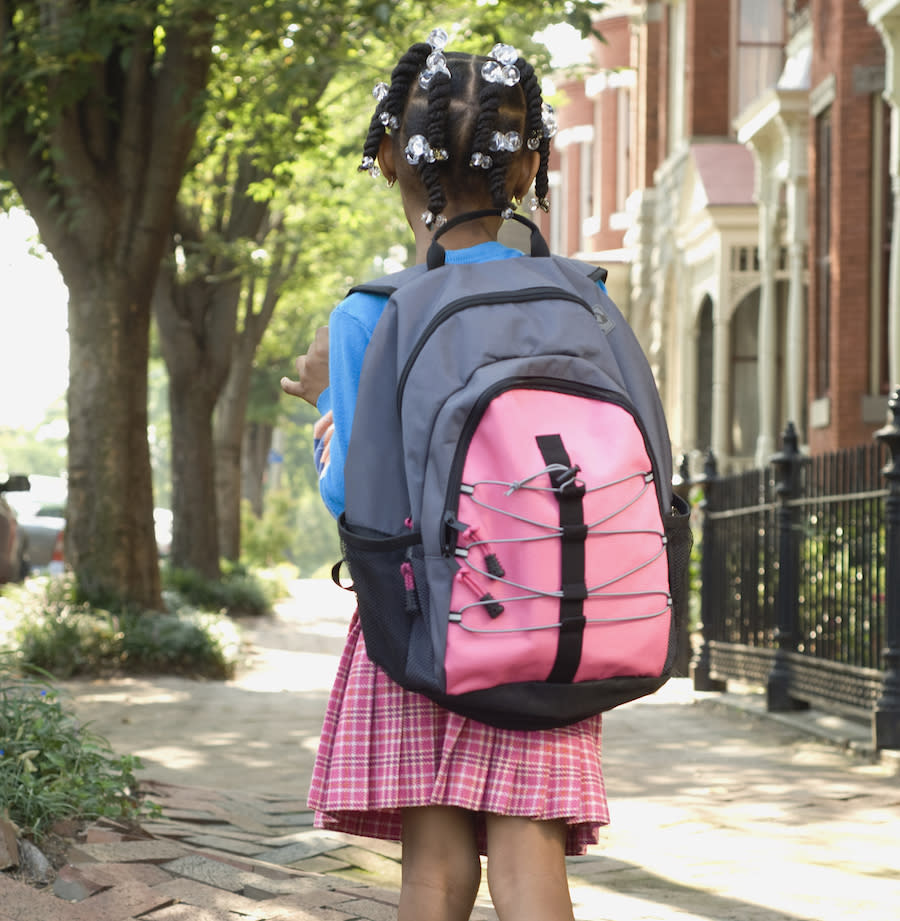I was stalked in eighth grade, and it still affects me today
January is National Stalking Awareness Month. If you are being stalked, The Stalking Resource Center has important information about getting help. Find it here.
When I was 13, I was followed home from school for a month. Being stalked was one of the most anxiety-inducing periods of my life. Despite it happening years ago, I still struggle to get on a bus because of the traumatizing experience.
It started when I noticed the same man riding the bus that I took to go home every day, which wouldn’t have been strange ordinarily. I brushed it off for a week, until I realized that he always got off at the same stop as me. Even after I tried to change up my routine by getting on and off at different stops — walking more and riding the bus less — he was everywhere. I felt like I was living in a video game where I kept bumping into the same character.
It became remarkably scarier when the man started following me to my house. I would get off the bus and run, looking behind me to see if he was there; he was almost always there. I’d reach my house, and then keep walking past it for fear of him knowing where I lived.
My commute home from school became more than just a bus ride, but rather a series of panic attacks.
I feared for my and my family’s safety.
January is National Stalking Awareness Month. Learn how to prevent stalking and #VetoViolence in your community: https://t.co/VLHUgnZ5aS pic.twitter.com/DBr6uE5pWH
— CDC Injury Center (@CDCInjury) January 3, 2018
At the time, I was terrified to tell my parents what was happening. I still can’t say exactly why; I think I was scared that they would be angry with me or that they wouldn’t believe me.
But they did believe me. They got the police involved and they supported me. I’m lucky enough to have a mom who is my rock and stood by me throughout the entire ordeal.
My stalking ending in an anticlimactic way (thankfully): with a deep breath and a realization on a Tuesday afternoon that he wasn’t on the bus. My heart stayed in my throat for months after, but I knew how lucky I was that he just went away. 7.5 million people are stalked each year in the United States, and so many of thosepeople are not as lucky as I was.
I feel like there is no way to fully convey the anxiety I felt that month and afterwards, but I’ll try: It was as if a massive rock fell on my chest each time the bell rang at the end of the school day. I was scared to invite friends over or even leave my house to go to school because I thought that I would be found and hurt. Nobody should ever have to experience that fear, much less a 13-year-old girl who only wanted to go home.
I still experience debilitating anxiety when I’m on public transportation.
Even after years of therapy, I can’t shake the feeling that once I step off the bus, someone will be right behind me. Granted, my anxiety is much more controlled than it was previously; now I can actually get on a bus without having an anxiety attack. But I’m still very stressed whenever I take public transportation. I find my trauma so frustrating because I don’t have very many options when it comes to getting around. For me, it’s usually the bus or the train — or my own two feet. Feeling trapped because of my lack of access to options that don’t cause panic attacks is less than convenient. But it is something I will continue to work through.
I was a victim of stalking, and I survived it. If you are a victim of stalking (one in six women in America will experience stalking at some point in their life), or you think you may be being stalked, here are some things you can do.
#Stalking is more common than you think. #DVFacts #NSAM pic.twitter.com/XLm9gi3mgo
— NCADV (@NCADV) January 5, 2018
Understand that it is not your fault.
The first question I asked myself when I was 13 was, “What’d I do to make this happen?” The answer is simple: I did nothing. It’s never your fault if someone stalks you, and it’s important to know that. For the sake of your mental health, accept that you did nothing to cause the stalking incident to occur. It’s the stalker’s fault, and nobody else’s.
Report suspicious behavior to authorities as soon as you notice it.
The unwelcome fact is that people who stalk others don’t just go away. If you can, it’s important to get the correct authorities involved as soon as possible so that you will have protection and helpful people working on your case. But sometimes, unfortunately, authorities won’t take you seriously or stalkers won’t be held accountable (stalking isn’t even a felony in many states) — but don’t let this cause you to back down. Call the police if you can, but if they don’t help you, know that there are more resources out there to help you, like SafeHorizon. You can call their 24-hour hotline at 1-800-621-HOPE (4673), though they advise to call 911 if you are in immediate danger.
You are stronger than you realize, and help is out there.


